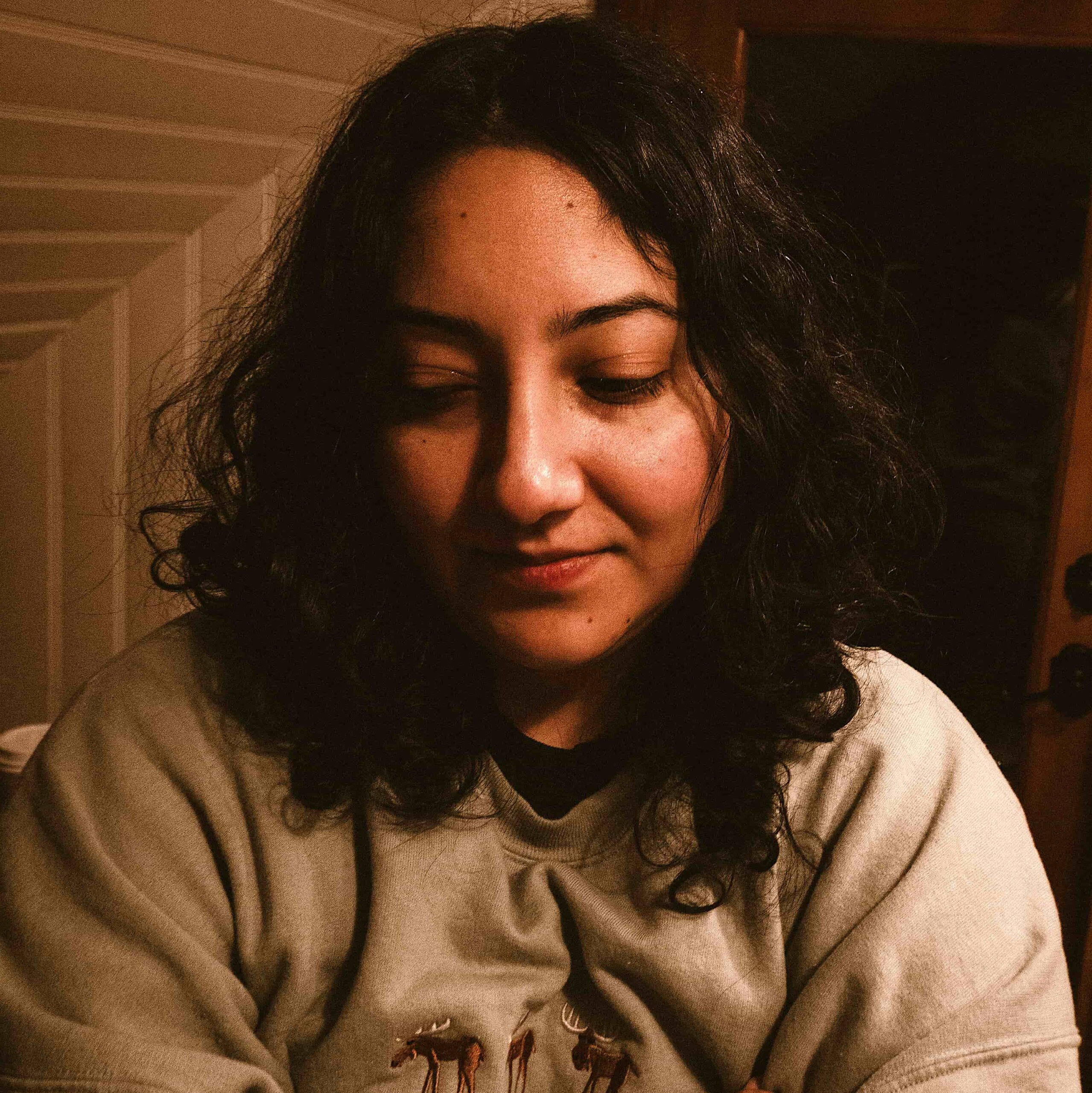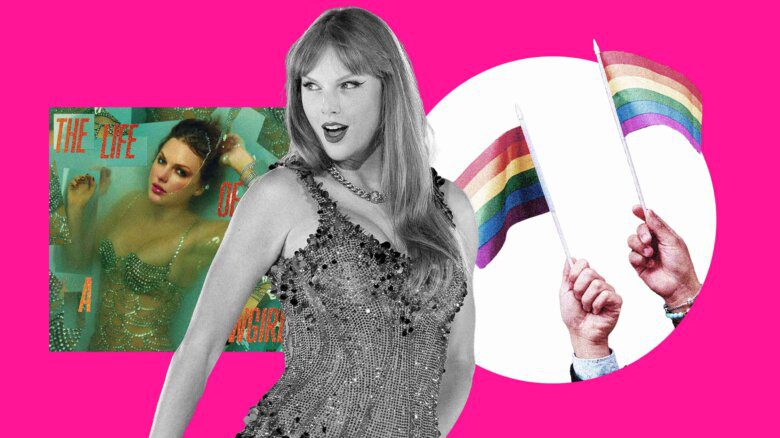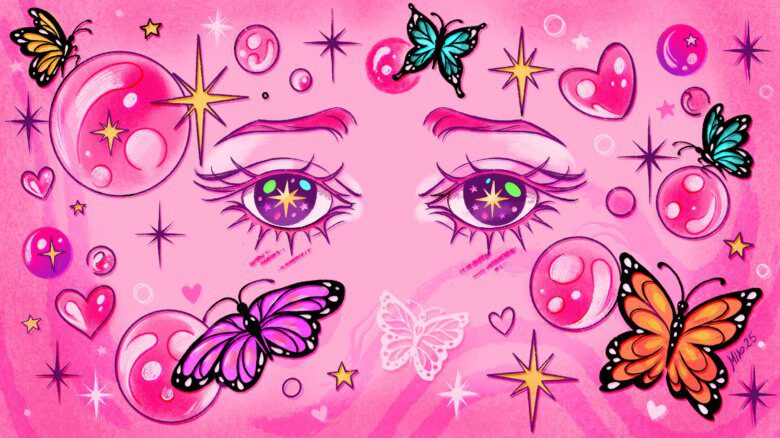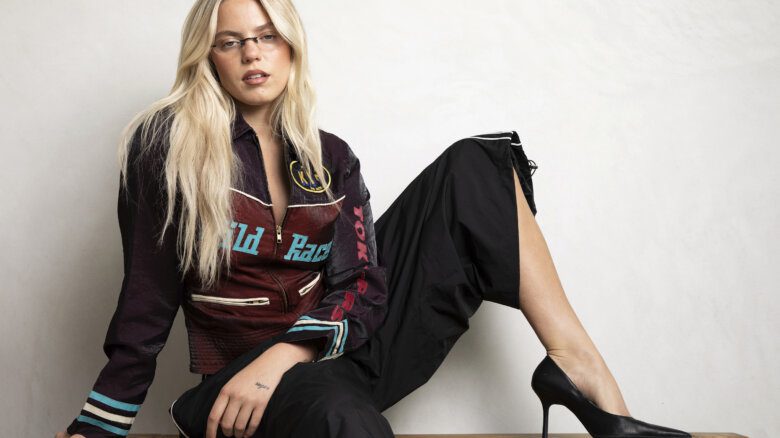The thing about trends is that they never actually die; from high-waist jeans to autotune, they always find their way back into the lexicon of mainstream pop culture. Inspired by this idea, Marina Paiz named her Mexican alternative rock band Trends as a way to acknowledge the cyclical nature of life. The Los Angeles-based collective, she says, has experienced a number of challenges in the almost nine years since its founding, but somehow they’re still standing, having created a sound that infuses their heritage into a genre in which they never saw themselves represented.
The earliest iterations of Trends began as a lo-fi solo project by lead singer and founder Paiz. Back in 2013, she began pursuing an associate degree in music production. Having played classical music for the bulk of her childhood—everything from Beethoven to Debussy—she knew she wanted to do something different, and honed her skills to be able to produce her own original tracks. After using live-looped tracks in a number of gigs, Paiz realized forming a band would allow her to create the sound she desired.
Paiz met drummer Karen Moreno in 2015, and the foundation of Trends began to form. Together, Paiz and Moreno posted listings on Craigslist to find a guitarist, but couldn’t find the right fit. Eventually, Paiz recruited a classmate as the band’s guitarist, but they only lasted a year before leaving. “We had put so much time into making Trends feel like a band, it felt like I was going backwards,” Paiz says.
For a while, Paiz and Moreno operated as a duo, continuing to write songs and rehearse in a Whisper Room (a small soundproof box) in Vernon, California, surrounded by refrigerated warehouses. “Black walls, no windows, always someone smoking,” Paiz says. “But the writing was happening, and it felt like the record was getting closer.”

Age: 26
Pronouns: She/her
Genre: Alternative rock
Sounds like: An echoing, euphoric trance
First song you should listen to: “Branches.”
Credit: Adjenai Worrell
When current lead guitarist Abraham Urias joined in late 2016, the band Paiz always hoped for began materializing. Bonding over their shared Mexican heritage, the group spent their nights working on what would become their debut album. In 2018, bassist Jose Valiñas joined the band.
In February 2019, Trends released its first single, “Ampersand,” a mid-tempo odyssey about not letting life pass you by filled with wispy chimes and percussion. Paiz’s vocals are harrowing echoes of her inner thoughts. By the end of that year, the band released its second single, “Branches,” a track that showcases Trends’ layered capabilities, blending jagged guitar strings, jazzy drums and modulated vocals that erupt with heavy bass. These songs set the stage for the group’s debut album, Palettes, released in early 2020 just before the pandemic. The emotional nine-track alt-rock project, which Paiz and Andrew Murdock co-produced, is everything she and the band envisioned, proving a slow process can lead to a well-baked debut.
Xtra recently spoke with Paiz to discuss Trends’ forthcoming work, the importance of women sound engineers and producers and more.
Tell me about the band dynamic. How did your shared Mexican heritage influence your creative process?
I don’t have specific examples that link to our shared heritage, but when you hang around people from the same cultural background, some things go unspoken in communication and understanding. This iteration of the band felt like family—which came with its ups and downs—but we could really trust each other on stage and share parts of our lives off-stage as well.
It was a blessing and curse because communication [about our emotions] maybe wasn’t the best, and we were all navigating that. But in terms of where our values lied, the strength of family and knowing that we would get through this in one piece, that was really important. We’re all bilingual as well, so we would switch languages and everything when writing songs for Palettes. It was refreshing to be among people [with shared heritage] because in this [rock] scene, it’s usually dominated by white men.
A lot of musicians have been negatively impacted by the pandemic and not being able to tour and perform live. How has the pandemic affected Trends?
Well, it sucks because in 2020, Palettes came out, and I was like, “Oh, we’re going to [perform it live] and everything.” That did not happen because of the pandemic. Since the pandemic, there have been two less members because—actually, everyone is from Mexico—but they’ve gone back home. Most of the writing for the new stuff was done with three members, and it was all over Zoom and Skype.
You said that this scene is typically dominated by white men. How, then, has it been navigating this space as a Latinx woman?
It’s a white male-dominated industry. I do freelance producing and engineering, which can be such a toxic space. I grew up listening to alt-rock that would validate my feelings, specifically sadness. But now I realize, “Oh, these were just white dudes singing about these things.” Growing up Latinx, I’ve barely come to terms with the fact that I’m entitled to sadness, too, and I don’t have to feel weird about going to therapy or showing what I grew up knowing as weaknesses.
I think it’s essential for me to continue music because I didn’t see anyone like me growing up. It’s getting much better, and younger generations can see people they can relate to.
There’s been a slow rise of female producers and engineers in the industry. Tell me about your hopes for more women getting those opportunities.
With the engineering side of things, I think it’s insanely invaluable to have women in the room. My partner went to school for songwriting, and she was in a program where they were [learning the foundational work] of engineering and producing their own stuff. There’s nothing like relying on yourself, especially when you’re a woman—specifically a woman of colour—because if you can reduce the number of times that you have to be in a toxic environment, you absolutely should.
I’ve been to venues where the live sound engineers think I don’t know what I’m doing. I’ve worked with producers that are like, “No, it’s supposed to be like this.” Somebody else’s ego should never get in the way of your artistry, so I love seeing more women engineers and producers.
We got Palettes in 2020. What’s next?
The new material is more honest. With Palettes, a lot of it was pretty vague, lyrically and metaphorically, because it’s hard to say how you’re feeling sometimes. So hopefully, people relate to the new stuff. It’s definitely about grief and losing relationships and losing loved ones during this time. I think that’s pretty universal. Right now, I’m still recording some guitars and making sure that everything’s sound, and then I’m just going to put it out as an EP or singles in, I think, April. April sounds good to me.


 Why you can trust Xtra
Why you can trust Xtra


